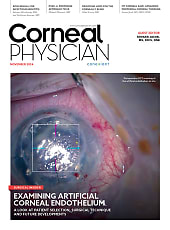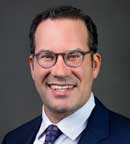This article was originally published in a sponsored newsletter.
Retina fellowship is a magical time. It is a once-in-a-lifetime opportunity for a young surgeon to hone and specialize their pre-existing, already-rarified skill.
Fellowship is loaded with complex clinical situations, which is absolutely appropriate. It’s the place where you’re supposed to be medically and surgically challenged on a daily basis, and the mistakes you make during fellowship are meant to be learned from, so you provide experienced community retinal care throughout your career. That’s the traditional medical education pressure-cooker from which competent clinicians have emerged from for generations, and it generally works well.1
In the real world, however, there are two daily situations which are not confronted head-on in fellowship.
THE ROUTINE ELECTIVE CASE
The first is the routine elective case. It is critical that the new retina specialist excels at the routine, ho-hum, bread-and-butter, elective surgical case. Macular puckers, macular holes, and vitreous opacities/hemorrhage still comprise a majority of the case mix in most real-world practices. As a new retina specialist, as in life, there is just one chance to make a first impression. Good results and comfortable patients with routine cases is where both an external community and internal practice reputation is created. Toward the end of fellowship, I recommend doing a series of routine cases—don’t give them away to the rising fellow or attending—focusing on efficiency and intra-op/post-op patient experience.
PROFESSIONAL MANAGEMENT
The second daily, post-fellowship situation is the challenge of practice and personal professional management. My recommendation is not to urgently pursue an MBA or take a crash-course in management/personal finance course. (Those can be helpful, but there is limited time in training, and often even less afterward.) Instead, toward the end of fellowship training, reserve time every day to proactively correspond with your mentors in training, colleagues who have recently graduated, and your soon-to-be practice partners about the most basic practice and personal management questions. Make a list of 5 to 10 practical questions important to you and ask these three groups every question. There is no question too basic, and I would bet most senior physicians would be thrilled to discuss these concerns with fellows.
———
I loved fellowship, and I often think about how much fun it would be to return. Enjoy the journey, and remember that the prepared doctor is the lucky doctor.
Reference
1. Bakri SJ, Alniemi ST, Chan RVP. Experiences of vitreoretinal surgery fellows in the United States. Retina. 2013;33(2):392-396.









